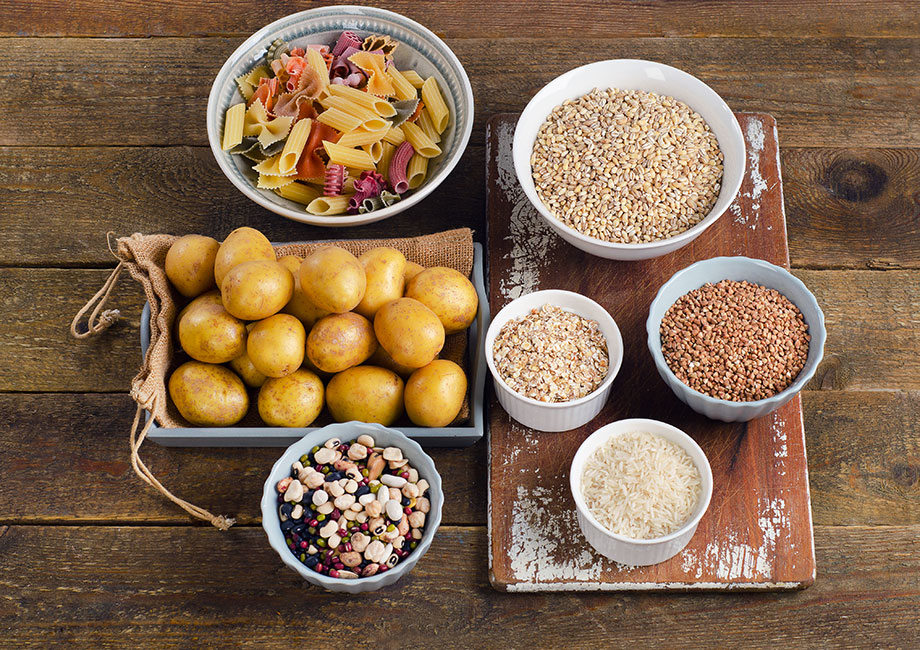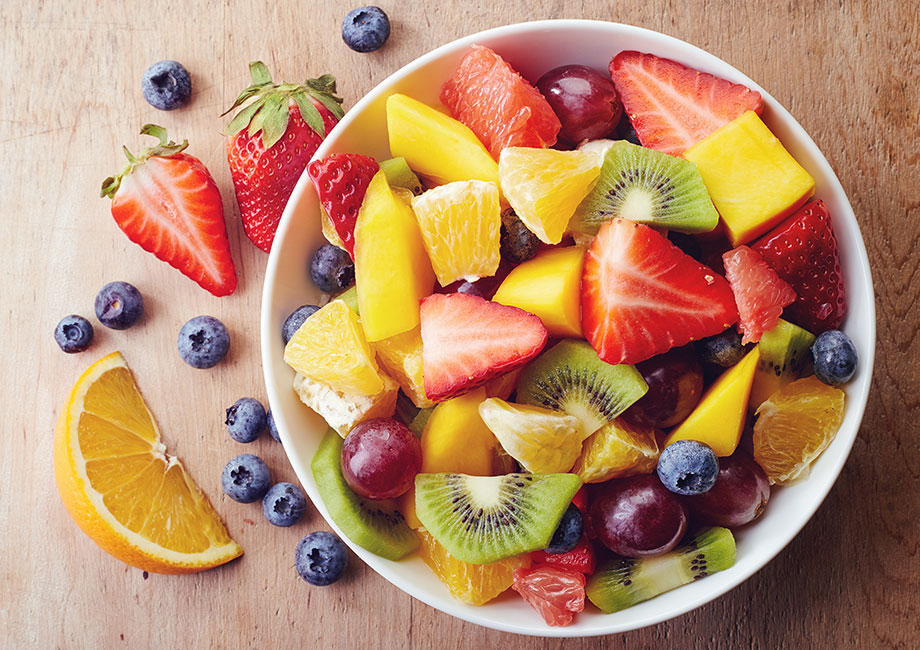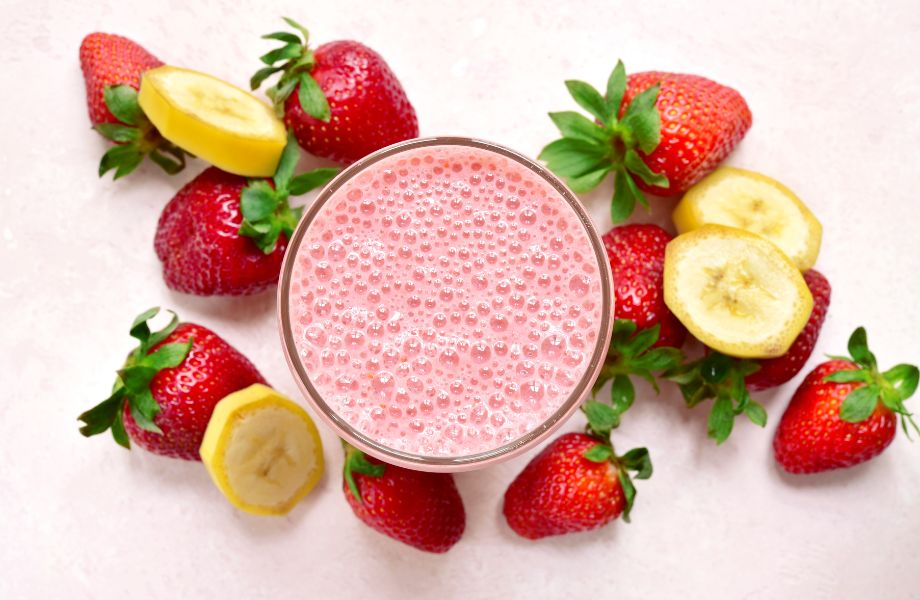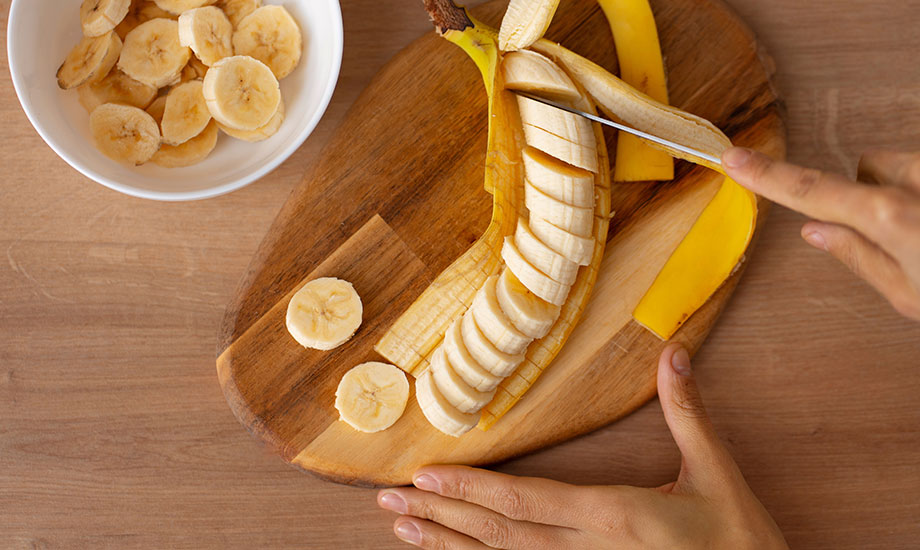We test and review fitness products based on an independent, multi-point methodology. If you use our links to purchase something, we may earn a commission. Read our disclosures.
When rushing to the gym, spin studio, or your favorite running trail, having go-to foods that boost energy levels and fuel your workouts appropriately is essential. Many people take commercial pre-workout powders, but you can also get energy from good, old-fashioned pre-workout foods.
Bananas are certainly one of the most popular snacks to have before exercising, but is it effective to eat a banana for pre workout? With their high carb content, some people worry that bananas are unhealthy. Others wonder whether they actually provide your body with what it needs to endure a tough workout.
As a registered dietitian and certified personal trainer, I’ll discuss how bananas can fit into your pre-workout nutrition plan and why they’re such a good option.
Benefits of Bananas
Bananas are one of the best pre-workout snacks for a number of reasons, which we’ll dive into below.
High in Carbohydrates
One medium, ripe banana contains 27 grams of carbohydrates in the form of natural sugars. Carbs often get a bad rap, but they’re essential for performing at your best.
Carbs are the body’s preferred and most easily used source of energy, especially during endurance, or “aerobic,” activities like running or cycling.
With prolonged exercise, the body will begin using glycogen stores for energy. Glycogen is the term for carbs stored within skeletal muscle, and consuming carbs right before a workout can prevent the body from dipping into its glycogen stores as quickly, helping you perform more effectively for longer periods of time.
They’re also used during sports that require a combination of cardio and power movements. For these types of exercise, carbs serve as fuel for working muscles.

Carbs are also important for high-intensity, short-duration activities like lifting weights. Pre-workout carbs can help prevent the body from breaking muscle tissue down for energy during long weightlifting sessions, helping maintain the muscle mass you’ve worked so hard to build.
In other words, the body will use muscle mass for energy when there aren’t enough carbs available. This is why, if one of your goals is to build or maintain the muscle you have, fasted workouts may not be the best idea.
Eating a banana or two before a workout raises blood glucose levels, which is a good thing. This provides the muscles with a convenient source of energy.
If you get nauseous or light-headed when working out on an empty stomach, eating a banana beforehand can help prevent these symptoms.
RELATED: Best Carbs for Bodybuilding
Easy to Digest
Pre-workout carbs are essential for fueling a workout, but having them together with too much fiber or fat can cause digestive discomfort during exercise. This is something no one wants to experience in the middle of a lift or long bike ride!
Thankfully, bananas are low in fat and only contain about 3 grams of fiber in one banana. This is enough to support healthy blood sugar levels and gut health without causing bloating or abdominal cramps as you’re exercising.
Because bananas are high in carbs without being too high in fiber, their carbohydrates are absorbed into the bloodstream relatively quickly and are available as an energy source for working muscles. If you’ve ever watched a tennis match and noticed the athletes refueling with bananas in between sets, now you know why.
RELATED: Pre-Workout Breakfast
Potassium-Rich Food
Ask anyone what nutrient bananas contain and you can bet good money that they’ll mention potassium.
One medium banana contains 422 milligrams of potassium, or about 9% of the Daily Value. While bananas aren’t the best food source of potassium, they’re still a valuable food for fitness enthusiasts.
Potassium is a mineral and electrolyte that helps facilitate muscle contractions. When potassium is inadequate, muscle cramps can occur.
Unfortunately, a small study published in the Journal of Athletic Training1 indicated that bananas probably aren’t high enough in potassium to help treat muscle cramps once they’ve already started.
However, the authors noted that eating bananas in combination with other potassium-containing foods can help prevent muscle cramps by ensuring adequate daily potassium intake overall.
Good Source of Antioxidants
Antioxidants are plant-based compounds that fight oxidative stress in our bodies. Oxidative stress can be caused by poor diet, exposure to environmental pollutants, or reactive oxygen species (ROS) that occur naturally during normal metabolic processes.
To encourage people to get more antioxidants in their diet, dietitians (like myself) often recommend “eating a rainbow” of brightly colored fruits and vegetables like dark berries and leafy greens.
This is a helpful illustration, but it’s important to keep in mind that pale fruits and vegetables like onions, jicama, potatoes, and even bananas contain antioxidants, as well.

Antioxidants2 may help reduce delayed-onset muscle soreness (DOMS) caused by oxidative stress that naturally occurs during exercise, although the optimal dose of antioxidants needed to be effective isn’t yet known.
Regardless, bananas are a good source of antioxidants, provide many health benefits, and are more nutrient-dense than refined carbs like crackers, pretzels, or white bread.
RELATED: Post-Workout Recovery Myths
Convenient and Travel-Friendly
For many people, convenience is key for adequately fueling their workouts.
In my opinion, one of the best things about bananas is that they come in their own travel-friendly packaging. Since they come pre-packaged in a sturdy peel, they’re easy to grab and go.
They can also be placed directly in a lunch bag, gym bag, or backpack, as long as they won’t get bruised.
Affordable
If you’ve ever perused the pre-workout supplement aisle, you know that products like these can be pricey. If you’re on a tight budget, it can be difficult to justify purchasing them regularly.
Fortunately, bananas are an affordable pre-workout alternative. They don’t contain the caffeine, creatine, or other ingredients often added to pre-workouts to help boost exercise performance, but they’re a great source of carbs priced at an average of $0.63 per pound3 as of March 2024.
How to Eat Bananas for Pre-Workout
The best way to eat a banana before a workout primarily comes down to timing.
If you’re eating less than 30-60 minutes before a workout, bananas can be eaten plain with minimal fat. You might be able to tolerate a light spread of nut butter, but too much may cause some digestive upset during your workout.
Bananas can also be eaten with a small amount of protein, such as a glass of chocolate milk, a smear of peanut butter, or the amount in a slice of toast.

Many people will want to avoid high-protein meals or shakes with over 15-20 grams of protein right before a workout, as protein takes longer to digest than carbs. Additionally, amino acids aren’t necessary in high amounts during exercise. Of course, some people have no problem working out on a full stomach, so this is really up to your personal preference.
If you have more than 60 minutes before you plan to begin exercising, feel free to spread your banana with peanut butter or almond butter for a source of protein and healthy fats. Peanut butter toast with sliced bananas makes an excellent pre-workout meal or snack.
You can also blend bananas with protein powder and calcium-fortified almond milk to make a protein shake if you prefer getting your protein in before working out.
RELATED: Best Time to Drink a Protein Shake
Banana for Pre Workout: Final Thoughts
When fueling for a tough workout, reaching for a banana or two is a great choice. They don’t contain caffeine, creatine, or other exercise-boosting ingredients in commercial pre-workout supplements, but they’re a great source of energizing carbs.
To summarize, pre-workout bananas offer the following benefits:
- Provide muscle-sparing carbohydrates to fuel working muscles
- Unlikely to cause digestive discomfort during a workout
- Can help prevent muscle cramps when consumed with other potassium-rich foods by helping you meet your daily potassium needs
- May help reduce muscle soreness severity
- Easy to grab-and-go, helping you stick to your nutrition goals
- Budget-friendly
For individualized recommendations and guidance on optimizing your carb intake for athletic performance, consider consulting a registered dietitian nutritionist specializing in sports nutrition.
Bananas are an excellent pre-workout snack, but do they also help build muscle? See whether they made our top pick as the Best Fruit for Muscle Building!
Banana for Pre Workout: FAQs
Is banana good for pre-workout?
Bananas are a great pre-workout food. They provide energy in the form of carbohydrates, are easy to digest, and are a good source of potassium and antioxidants. Respectively, these last two nutrients can help prevent muscle cramps and may reduce muscle soreness after exercise.
How long does it take for a banana to give you energy?
When eaten plain, bananas are digested quickly thanks to their minimal fat and fiber content. The exact time will vary based on what else is present in your stomach, but you can expect to get energy from a plain banana within about 30 minutes.
What fruits are good before workout?
Before a workout, it’s best to have fruits that are high in carbohydrates while relatively low in fiber. These include fruits like bananas, mangoes, plantains, dates, papaya, pineapple, nectarines, peaches, cantaloupe, honeydew, and kiwis.
What is best to eat before going to the gym?
Avoid having anything too high in fat, fiber, or protein before a workout, as these slow absorption and may cause digestive problems while exercising. Foods with carbohydrates and a moderate amount of protein should be well tolerated and absorbed. Examples of good pre-workout snacks include:
-Bananas
-Dates
-Crackers or pretzels with a small amount of nut butter or cheese
-Oatmeal with Greek yogurt or soy yogurt
-Whole grain peanut butter toast (light on the peanut butter)
-Pretzels and hummus
-Half a sandwich
-Low-fat granola
References
- Miller K. C. (2012). Plasma potassium concentration and content changes after banana ingestion in exercised men. Journal of Athletic Training, 47(6), 648–654. https://doi.org/10.4085/1062-6050-47.6.05
- Clemente-Suárez, V. J., Bustamante-Sanchez, Á., Mielgo-Ayuso, J., Martínez-Guardado, I., Martín-Rodríguez, A., & Tornero-Aguilera, J. F. (2023). Antioxidants and Sports Performance. Nutrients, 15(10), 2371. https://doi.org/10.3390/nu15102371
- U.S. Department of Agriculture Economic Research Service. U.S. Average Retail Prices, Fresh and Processed Fruits. USDA website. Accessed 4/22/24.
Further reading

Our NordicTrack S15i bike reviews gives you an in-depth look at this cutting-edge bike from one of the industry’s most trusted names. Read more

In our comparison of Factor vs HelloFresh, we’ll look at how this prepared meal delivery competes with one of the most popular meal kit services available. Read more

In this Precor TRM 835 treadmill review, we’ll let you know if this expensive, commercial-grade machine is worth the moolah. Read more

In our REP Ares Cable Attachment review, we will break down this highly engineered piece of equipment, tell you if we think it’s worth it, and share how you can get yours Read more

